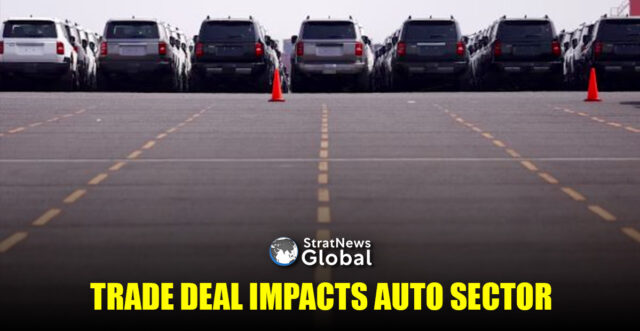South Korea said on Friday that U.S. President Donald Trump has signed an executive order to implement a trade deal with Japan that lowers tariffs on Japanese car imports to 15%. Officials warned the move is expected to have an impact on South Korea’s auto industry.
South Korea is assessing the details of the trade deal, signed by Trump on Thursday, a Seoul trade official said.
The lower tariffs on Japanese autos are set to take effect seven days after publication of the order.
The move would put South Korean automakers at a competitive disadvantage to their Japanese rivals, as U.S. tariffs on South Korean auto imports remain at 25%. The 15% charge applies retroactively to most products shipped starting Aug. 7.
“We are assessing the details of the executive order and consulting with the U.S. in depth,” the official said by phone, adding that it was difficult to say when South Korea would be granted the same auto tariff cut.
Hyundai Motor shares were down 0.2%, while Kia Corp fell 0.7%.
U.S. Tariffs
On July 30, Trump said the U.S. will charge a 15% tariff on imports from South Korea, down from a threatened 25%, and reduce duties on automobile imports to 15% from the current 25%, in return for Seoul investing $350 billion in the United States.
But the tariff cut on automobiles has not been implemented, as South Korea and the United States remain at odds over the details of the $350 billion investments in strategic U.S. industries pledged by Seoul, despite a summit between South Korean President Lee Jae Myung and Trump.
Presidential policy adviser Kim Yong-beom said last week that the two sides were still trying to hammer out major differences about the details, as they work toward signing a non-binding memorandum of understanding on the investments.
Kim said he acknowledged “frustration” from Korean automakers, but “we have to come up with a proposal that is acceptable to the public,” adding that South Korea also needs to discuss the potential U.S. deal with parliament.
“There is an implicit consensus among the government and public in Japan that there should be no confrontation with the United States. But Korea is different. Korea is a very tough country,” he said.
South Korea has said direct investment would account for a small portion of the investments, which it said would largely consist of loans and guarantees.
(With inputs from Reuters)





